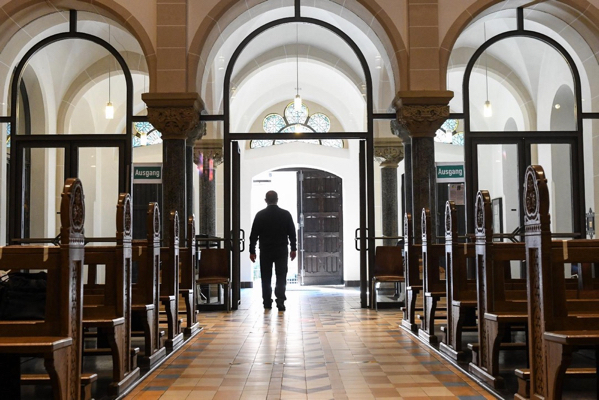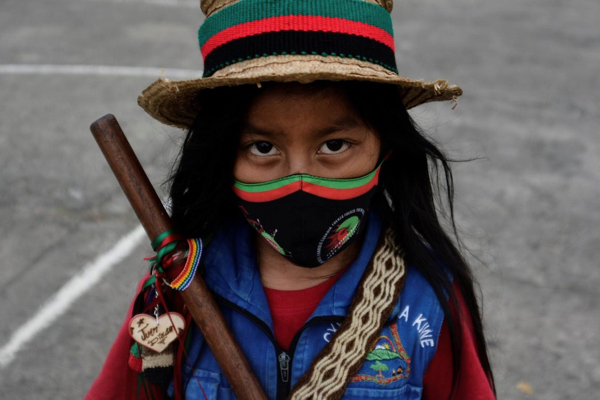On Tuesday 28 June a distinguished Colombian Jesuit, Fr Francisco de Roux, presented the final report of the country’s Truth Commission, established as part of the 2016 peace agreement between the government and the largest guerrilla group, the FARC-EP. The agreement formally ended more than 50 years of internal conflict. Fr de Roux, the commission’s president, summarised the commission’s three and a half years’ work: the commission, he said, had heard evidence from over 30,000 witnesses in 28 sites in Colombia and from Colombian exiles in 24 countries. It had also received more than 1,000 reports from civil society organisations. In addition, the commission noted, it had received “clear and discreet” support from Pope Francis.
The commission aimed to echo its motto: “There is a future if there is truth.” The report notes that Colombia’s institutions did nothing for decades to stop the conflict, including the Churches: “In the face of this crisis of the spirit what did the religious leaders do? …What did the majority of bishops, priests and religious communities do?” the commission asked.
The report makes grim reading as it reviews the various categories of horror to which the Colombian population was subjected, especially the poor rural communities. There are an estimated 110,000 “disappeared” people. There is the long list of kidnappings, which the FARC used as a fundraising tool with its demands for ransom. Massacres were committed, not only by the guerrillas but also by the armed forces and the paramilitaries, armed groups supported by landowners and accepted as unofficial allies by the army.
One of the biggest atrocities was the so-called “false positives”: the army recruited young people with promises of employment, murdered them and dressed their corpses in guerrilla uniforms and added them to their tally of guerrillas killed in action. The official estimate of these young victims is 6,402 but, says the commission, there were probably many more.
And yet it would have been easy to stop. When the government finally took action, in 2008, and sacked 36 senior officers, including three generals, the killings stopped immediately. Here again the Church’s role is called in question. All these military units had chaplains, under the authority of the bishop of the armed forces. Why did they do nothing? the report asks. Thirty thousand young people aged 15 or under were involved in the conflict by the various actors. Girls were particularly vulnerable, used for sex by commanders and often forced to undergo abortions if they became pregnant.
The commission offers some suggestions: as to why all this happened: the gross inequalities in Colombian society, the fear of communism in the well-to-do sectors, racism against indigenous and Afro-Colombians. It suggests that the causes can only be addressed by a dialogue “that will start a process that we hope will be irreversible and expanding”. The Church had not responded at the time of The Tablet’s going to press.



 Loading ...
Loading ...